The short answer: Yes, but you need to eat it in moderation and keep track of how much you consume
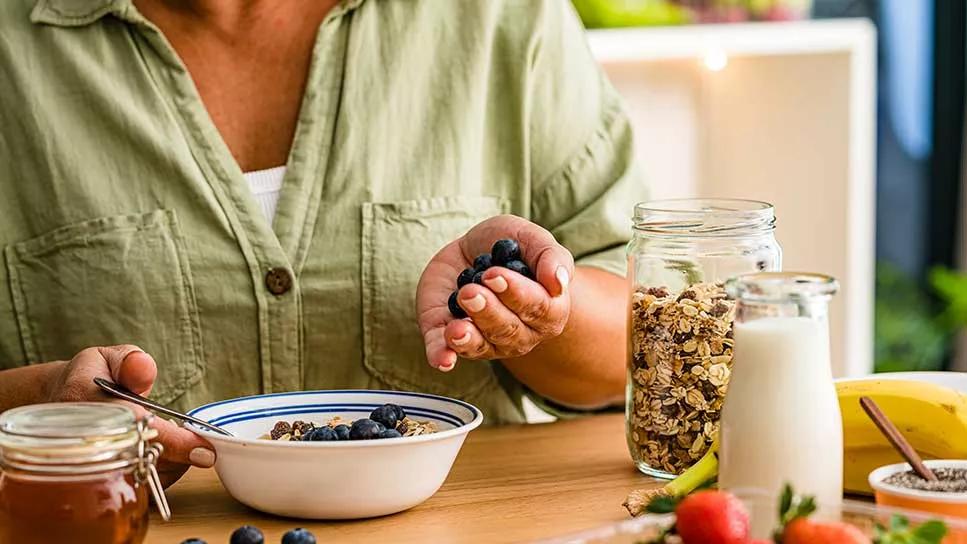
If you have diabetes, you may manage it by monitoring your blood sugar, taking medication and giving yourself insulin.
Advertisement
Cleveland Clinic is a non-profit academic medical center. Advertising on our site helps support our mission. We do not endorse non-Cleveland Clinic products or services. Policy
Another vital component of living with diabetes is focusing on what you eat by choosing healthy foods.
So, can people with diabetes eat sugar?
Diabetes educator Sue Cotey, RN, explains whether people with diabetes can eat sugar, as well as ways you can cut down the amount of sugar you consume.
The short answer? Yes, says Cotey.
But it’s all about learning how to count how much sugar you consume and how to make healthy choices each day.
Cotey says that once you’re diagnosed with diabetes, your healthcare team will work with you to go over what you’re currently eating and explain how you can make nutritious swaps. This typically includes counting your carbs — sugar is considered a simple carbohydrate, which causes your blood sugar to spike.
“You want to try and eliminate drinking sweetened beverages — even just having a big glass of juice for breakfast,” explains Cotey. “It’s better to get your carbohydrates from an orange than a glass of juice because the orange has so much fiber in it.”
So, how much sugar should you eat in a day?
While the U.S. Food and Drug Administration (FDA) doesn’t provide any guidance when it comes to sugar intake, the World Health Organization (WHO) recommends no more than 25 grams (6 teaspoons) per person per day. The American Heart Association recommends 36 grams (9 teaspoons) per day for men and 25 grams (6 teaspoons) per day for women. And those recommendations are the same whether you have diabetes or not.
Advertisement
“A lot of people put a tablespoon of sugar in their coffee and might have a couple of cups throughout the day. And if you get a flavored latte from a coffee shop, it’s loaded with added sugar. So, you might be getting added sugar along the way and you’re not even aware of it,” notes Cotey.
“It’s all about making better choices, like eating plain breakfast cereal instead of sugar-coated varieties. Even packets of instant oatmeal have a ton of added sugar. Instead, make your own oatmeal from scratch and add fruit to it.”
The takeaway when it comes to watching your sugar and carb intake?
“The more packaged or processed a food is, the more salt and sugar it’s going to have,” she warns.
Some foods contain natural sugars like fructose, which is found in fruit, and lactose, which is found in dairy products.
These naturally occurring sugars are your best bet, as they also provide other nutritional benefits like fiber, vitamin C and potassium. And fiber is known to help slow down how quickly your body absorbs fructose.
There are also plenty of foods that have added sugar — added sugar goes by many names so you need to be vigilant when searching an ingredient list.
Cotey suggests a few ways you can work on cutting down the amount of sugar you have each day.
The research on artificial sweeteners is still ongoing.
While options like saccharin (Sweet’n’ Low®), aspartame (Equal®) and sucralose (Splenda®) don’t contain sugar and contain few calories, it’s best to limit how much and how often you use them.
One concern is around sugar alcohols like erythritol, which may increase your risk for heart attack and stroke.
Other research shows artificial sweeteners may play a role in an increased risk of health conditions like having obesity, heart disease, high blood pressure and even Type 2 diabetes.
Processed foods may help you get dinner on the table quickly, but they’re typically loaded with additives and preservatives to make them taste better (hello, added sugar!) and have a longer shelf life.
“In addition to added sugar, many processed foods contain large amounts of sodium and fat,” says Cotey. “It’s best to limit how much processed food you eat — balance is key.”
Carbs aren’t the enemy.
“We don’t want you not to eat carbs — we want you to eat healthy sources of carbs like beans, vegetables, fruits and grains,” clarifies Cotey. “Those types of carbs will fuel your body. That’s what you need for energy.”
It’s also all about eating carbs in moderation and monitoring what you’re eating.
Advertisement
“It’s important to figure out a meal plan that works with your lifestyle,” she adds.
Reading labels on your food is another vital way to know what you’re truly putting into your body.
While you may think foods that are “sugar-free,” “fat-free” or reduced fat” may be better options for you, Cotey says it pays to be cautious and do your homework.
“Many of those items add other things to replace what they take out. For example, sugar-free candy may not have any sugar, but there’s been other types of carbs added to it,” she shares. “And we know that carbs can impact your blood sugar levels so you just need to pay attention and read those labels.”
Overall, it’s important to pay attention to how much sugar you consume, regardless of your health status.
“Sugar increases your risk for heart disease, cancer, kidney disease, liver disease — it’s not just diabetes, but we just happen to focus on it more because it can impact blood sugars,” says Cotey.
With that said, we’re not saying you can’t ever enjoy a cookie or cupcake if you have diabetes. You just need to make sure you keep track of how much sugar you’re consuming and know how it will impact your health.
Advertisement

Sign up for our Health Essentials emails for expert guidance on nutrition, fitness, sleep, skin care and more.
Learn more about our editorial process.
Advertisement

Hot, humid weather can affect your blood sugar levels and even cause dehydration or heat stroke

The good news? Prediabetes can be erased with healthy lifestyle changes, including eating more nutritious foods

Fresh or frozen fruits that are low on the glycemic index should be your go-to, as they’re full of fiber and other nutrients

Adding nuts like pistachios, almonds or pecans to your diet can help manage blood sugar levels
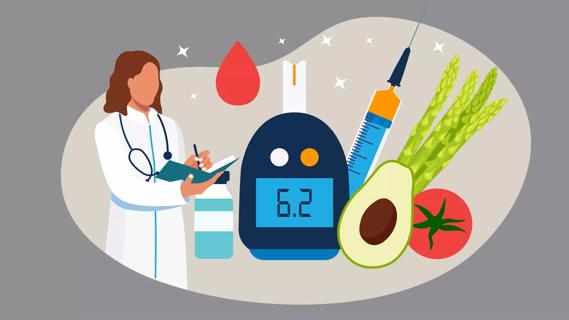
A diabetes diagnosis, new or long-standing, can trigger reactions like grief, stress, depression and frustration, but symptom relief and help are available
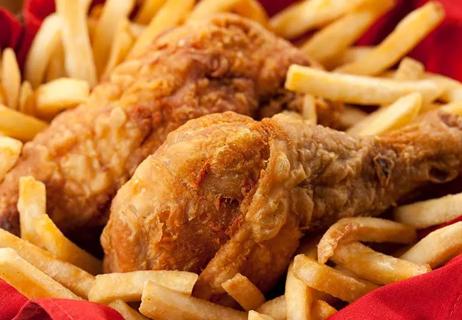
Sweet potatoes are great, but sweetened drinks aren’t so great
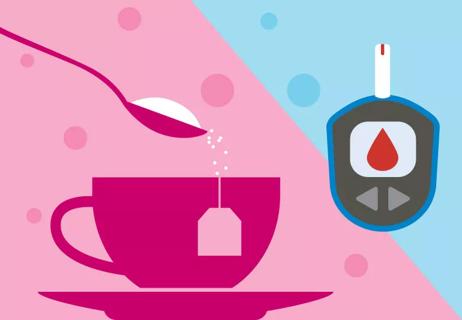
Some sweeteners may have health risks, so it’s best to keep your intake moderate
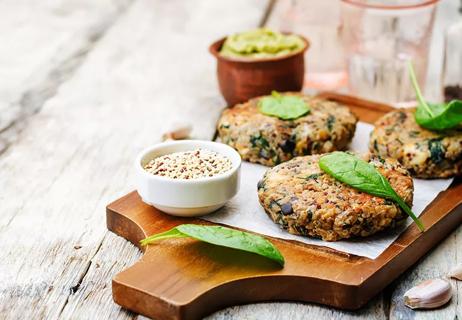
Lifestyle changes like diet and exercise can help

Even small moments of time outdoors can help reduce stress, boost mood and restore a sense of calm

A correct prescription helps your eyes see clearly — but as natural changes occur, you may need stronger or different eyeglasses

Both are medical emergencies, but they are very distinct events with different causes